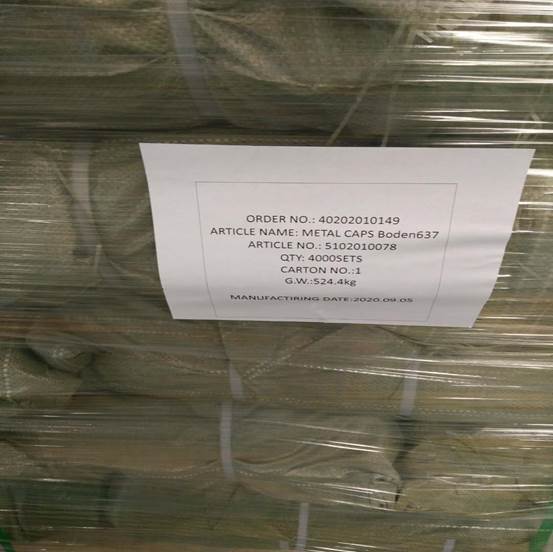Nov . 16, 2024 00:30 Back to list
wastewater treatment product
The Importance of Wastewater Treatment Products in Sustainable Water Management
Wastewater treatment is a critical process that involves the removal of contaminants from wastewater to make it safe for discharge into natural water bodies or for reuse. As urbanization and industrial activities continue to escalate globally, the need for effective wastewater management has become increasingly urgent. This is where wastewater treatment products play a pivotal role.
Wastewater treatment products encompass a wide range of technologies and materials used in the treatment process. These include chemical coagulants, filtration systems, biological treatment agents, and advanced oxidation processes. Each product is designed to tackle specific contaminants, ensuring that the effluent meets environmental standards before it is released back into nature or reused for purposes such as irrigation or industrial processes.
Chemical Coagulants
One of the most common types of wastewater treatment products is chemical coagulants. These substances facilitate the aggregation of suspended solids and colloidal particles in water, allowing them to settle out more easily. Common coagulants such as aluminum sulfate and ferric chloride work by neutralizing the charges on particles, leading to their clumping together and forming larger aggregates called flocs. This process is particularly vital in municipal wastewater treatment plants where large volumes of sewage need to be processed efficiently.
Filtration Systems
Filtration systems are another critical category of wastewater treatment products. These systems are designed to physically remove solids, pathogens, and other impurities from wastewater. Advanced filtration technologies, such as membrane filtration and activated carbon filters, have gained popularity due to their effectiveness in producing high-quality effluent. Membrane bioreactors, for example, combine biological treatment with membrane filtration, allowing for the separation of treated water from sludge in a single process. This not only enhances treatment efficiency but also reduces land requirements for wastewater treatment facilities.
Biological Treatment Agents
wastewater treatment product

Biological treatment agents are vital in treating organic pollutants in wastewater. These products utilize microorganisms to break down organic matter, thereby reducing biochemical oxygen demand (BOD) and making the wastewater less harmful. Bioaugmentation products, which contain specially selected strains of bacteria, are often added to treatment systems to enhance the natural microbial activity. This approach is particularly useful in addressing specific pollution issues, such as high nitrogen or phosphorous levels that can lead to nutrient pollution in receiving waters.
Advanced Oxidation Processes
Advanced oxidation processes (AOPs) represent a newer class of wastewater treatment products that utilize strong oxidants to degrade organic contaminants that are otherwise difficult to remove. AOPs, such as ozonation and UV/H2O2 treatment, effectively break down complex pollutants, including pharmaceuticals and personal care products, into less harmful substances. These processes are becoming increasingly important as regulatory agencies tighten restrictions on emerging contaminants in wastewater.
Environmental and Economic Benefits
The effective use of wastewater treatment products is not just about compliance with regulations; it also has significant environmental and economic implications. By treating wastewater effectively, we can prevent pollution of natural water bodies, protect aquatic ecosystems, and ensure the sustainability of water resources. Furthermore, the reuse of treated wastewater for irrigation, industrial processes, or even potable uses reduces the demand for freshwater, helping to conserve this precious resource.
Investing in wastewater treatment technologies also presents economic benefits. Treatment facilities that utilize modern wastewater treatment products can achieve operational efficiencies, reduce energy consumption, and lower the costs associated with sludge management. Moreover, by reclaiming valuable resources from wastewater, such as nutrients for fertilizer production or biogas for energy generation, municipalities and industries can turn wastewater management into a profitable venture.
Conclusion
In conclusion, wastewater treatment products are essential components in the quest for sustainable water management. As the challenges associated with water scarcity and pollution continue to grow, the role of these products in enhancing treatment efficiency and protecting environmental health cannot be overstated. By investing in innovative technologies and practices, we can ensure a cleaner, more sustainable future for our water resources, benefiting both people and the planet. The responsible management of wastewater not only improves public health and environmental quality but also contributes to the resilience of our communities in the face of changing climate conditions.
-
Cheap PLJY109-500 Full-Auto HDAF Expanded Mesh Spiral Coiling Machine - High Efficiency & Quality Manufacturer
NewsJul.08,2025
-
Best PLHJ-6 Full-Auto Eco Filter Rotary Heat Plating Machine - High Efficiency & Eco-Friendly Solution
NewsJul.08,2025
-
High-Efficiency Paper Pleating Machine for Filters Trusted Filter Paper Pleating Machine Company
NewsJul.07,2025
-
High-Performance Oil Filter for Cadillac ATS – Reliable Engine Protection Solutions
NewsJul.07,2025
-
High Quality PU Glue for Filters – Reliable Filter Glue Supplier & Exporter Get PU Glue Quotes Now
NewsJul.07,2025
-
China PLJL-4 Seal Leakage Tester for Spin-On Filter - High-Precision Multi-Station Testing Solutions
NewsJul.06,2025
